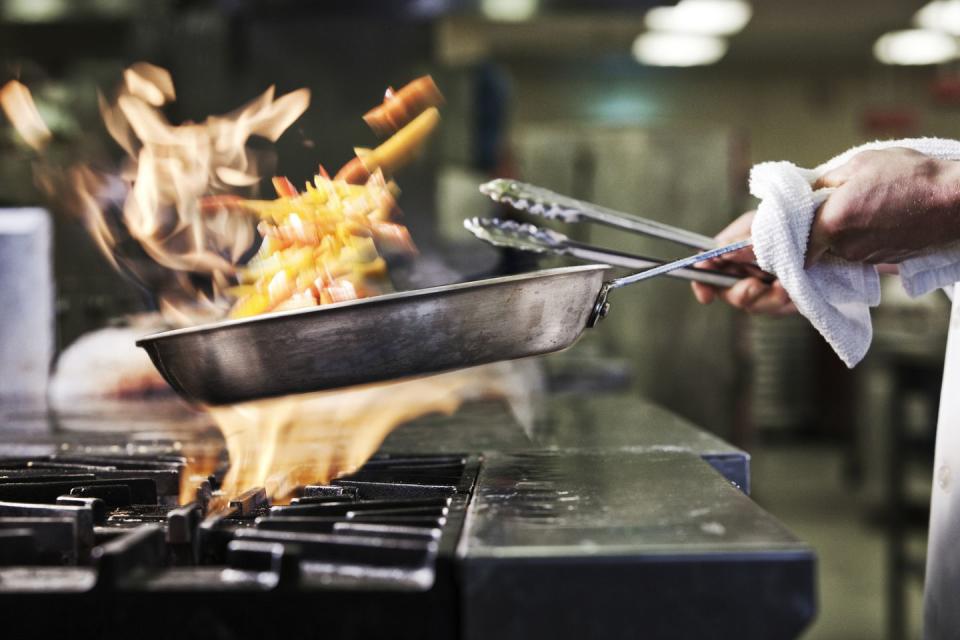Professional Chefs Reveal the Biggest Restaurant Red Flags

There's little else more frustrating than paying for a meal you didn't enjoy, but often we don't know a restaurant is bad until it's too late. So how can you spot the signs earlier? Look no further than this viral Reddit thread, in which professionals from the food industry are sharing the warning signs you should keep an eye out for while choosing a place to dine.
"Chefs, what red flags should people look out for when they go out to eat?" the r/askreddit thread asked.
From argumentative waiters to gross floors, these chefs are suggesting some restaurant red flags that will help you figure out almost instantly whether a place will be worth eating at, plus a couple of behind-the-scenes insights that will help you get the best value for money.

Keep an eye out for a temperamental chef:
"If employees try to argue with you about food quality in order to dissuade you from sending something under cooked back, just leave," says one commenter. "It means they have a cook who can't take criticism and your chances at getting a sneezer are greatly increased."
Watch how the staff interact with each other:
An eye for staff dynamics is something that a lot of restaurant workers in the thread picked up on. "I always look for how the staff interact with each other," says one guy who works as a cook in a small Mexican restaurant. "If they all seem to enjoy being there, and coordinate well, more often than not it's because everything is running smoothly and they have a good system, which usually means they know what they're doing and you can expect good food. That's how it always is for the smaller, family run restaurants I frequent anyway, which I believe always have the best food."

Carpets are a bad sign:
Restaurants with carpets came up on the thread a lot, both from a staff and customer point of view. Turns out, nobody likes them; they're unhygienic, smelly, and can ruin the atmosphere of an otherwise excellent place. "I clean carpet for a living, and restaurants are often disgusting," reads one comment.
Ask specific questions about the fish:
"Ask where your oysters come from. If they don’t know, you don’t want them," says another. "This works for most seafood." In fact, it's a pretty great rule for just about anything. Service staff in a steakhouse, for instance, should be well-versed in the provenance of all the meat.
"I worked as a server in a place where we were all briefed every night in absolute detail," recalls a commenter. "We had to know where the meat and fish on the menu was from, who the farmer was, the particular breed of cow or pig or lamb... the more the server knows about the ingredients in the food, it shows kind of like a badge of pride for the kitchen in a way. They take pride in what they do and they're taking every step to make sure this is communicated. It's a very very good sign."
Somebody else responded to this post, pointing out: "If a server is able to provide a lot of info about how a dish is made, people are more likely to get the more expensive items since they will pay for higher quality dishes." So it's a win-win.

Beware the massive menu:
"If a restaurant has a HUGE menu, it's all frozen," one person advised, with others agreeing: "If the menu is a book, it's probably not great."
How to make the chef really happy:
And one professional offered a tip on how to make a chef's day: "Pastry chef here. As much as people say avoid specials, I can't speak for everyone but at least in desserts/breakfast pastries, if you see something new it's worth trying. Chances are it's something the chef has been working on for weeks on their own time, there's a lot of love and effort put into it."
('You Might Also Like',)